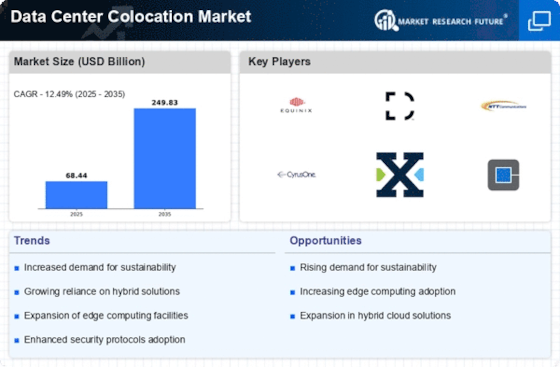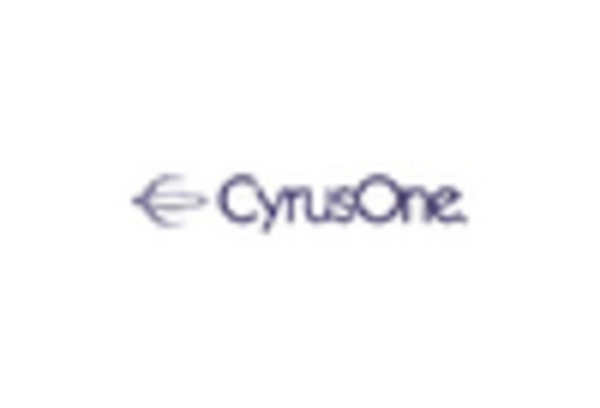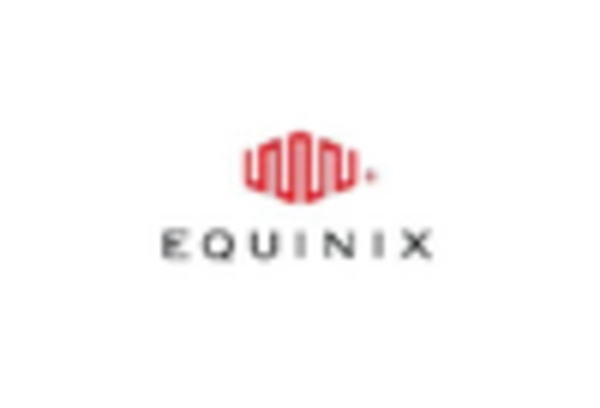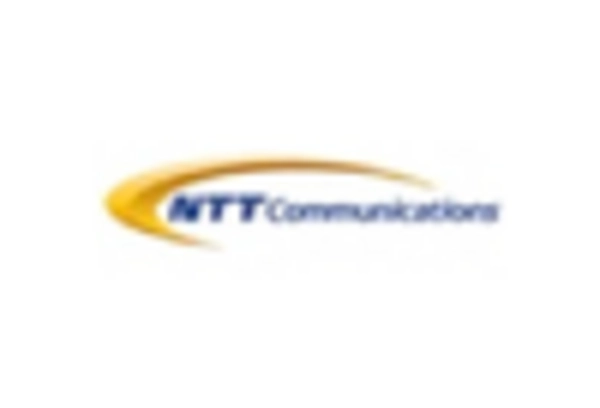Market Trends
Key Emerging Trends in the Data Center Colocation Market
In the wide world of the Data Center Colocation market, businesses have different positioning strategies for their market shares to create a strong presence and gain a competitive edge. One of the main strategies is differentiation where companies focus on the uniqueness of their colocation offerings in terms of features and services. This could be better security measures, energy efficiency or even specialized support services. The aim behind this is to attract customers who are looking for specific attributes and create an impression of added value, to foster customer loyalty. Furthermore, cost leadership is one critical strategy used in the Data Center Colocation market. Companies aim to become the lowest-cost providers by optimizing operational efficiency, scaling up and managing costs well. This approach is particularly effective in attracting price-conscious customers while allowing the business to gain larger scale advantage. Companies that go with this kind of strategy want to be known as reliable and low-cost providers for any business looking for affordable collocation solutions. Conversely, market segmentation is another major approach applied by firms operating in Data Center Colocation arena. Since there exist varied needs among distinct customer segments, businesses design their colocation services around these requirements. This entails targeted marketing efforts as well as sales activities plus coming up with tailor-made solutions to various industries. Market segmentation allows them to position themselves as experts in serving certain niches hence capturing diverse client bases hence increasing overall market share. On top of that partnerships and collaborations are increasingly useful within Data Center Colocations communities.. In other words several companies realized it was beneficial joining forces together with other technology providers, cloud service providers or industry experts mainly focusing on improving their colocation offerings. These collaborative arrangements allow companies diversify their product portfolio across many sectors and take advantages from synergies between them. Within data center colocations, effective branding and marketing are important in market share positioning strategies. Building a strong brand image is vital in achieving credibility and recognition. These companies spend much on marketing campaigns that exhibit their unique selling propositions as well as reliability plus success stories. Having a strong presence of the brand does not only attract new customers but also assures loyalty reinforcement thus contributing highly to market expansion.
Underlying continuous innovation is one of the most critical strategies employed within the Data Center Colocation industry. With rapid technology changes, businesses invest in research and development to make their colocation services more enhanced. This may require using such advanced technologies like edge computing, artificial intelligence or even sustainable practices. These innovative solutions do not only meet present business needs but also place companies at the top of competition attracting clients who appreciate cutting-edge and future-ready colocation services.


















Leave a Comment